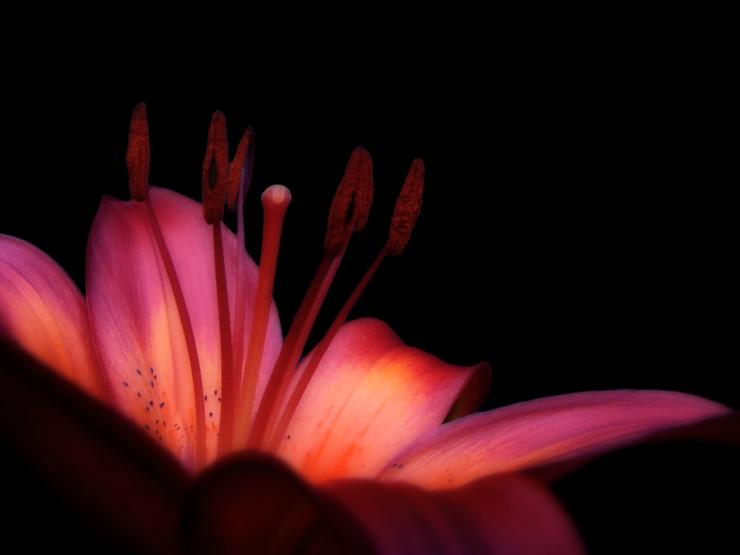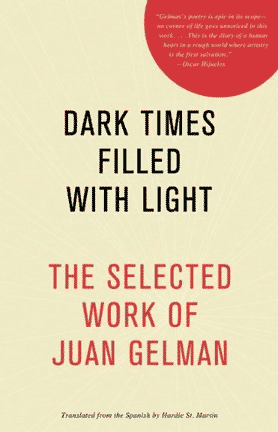There’s a ridiculous story I sometimes tell about pursuing a degree in political science because of its unique power to render me unemployable. But despite this episode of “How College Students Think” scoring a big thumbs-up on the truth-o-meter, there was more to the choice than merely purposing myself toward economic defeat.
I chose a study of politics because I knew whatever I ended up doing, I needed to be able to understand people.
One cold July afternoon in the mid-1980s I sat under ashen skies in Buenos Aires’ Plaza de Mayo where the mothers and grandmothers still marched every Thursday, red clay at my feet, the Casa Rosada in the distance, and an abundance of plump grey pigeons milling around and eating whatever delicacy (or not) a sight-seer might toss to them there. Without getting into specifics—in those days no one did—a friend was trying to help me understand the goings-on in her country, which were more than most 20-year-olds from the States could comprehend.
“Where you come from, ” she said, “La ley es rey.”
The law is king. In my world, no matter who the leader was, he or she was subject to the law. Of course. Wasn’t that the ideal everywhere?
No, she told me. “Aquí, el rey es ley.”
The king is the law.
Or, as Johnny Hart put it in The Wizard of Id’s definition of The Golden Rule, “Whoever has the gold makes the rules.”
It was then that I understood: our politics shape us. Not our ideologies, nor our own political persuasions or affiliations—they are the effect, not the cause. I mean our political experience. The whole of our history is important, yes. But the political systems within which and under which we have lived form, in a very particular way, our understanding of the world.
Over the past several weeks, I’ve been reading the poems of Juan Gelman, the Argentine poet whose politics and political experience are so vastly different than my own. One of the preeminent Spanish-language poets, Gelman spent many years in exile from his beloved Argentina, stemming from his opposition to both the regime of Juan Perón’s widow Isabel as well as that of the right-wing military dictatorship that overthrew her in 1976, with the inception of the dark days known as the Dirty War in which tens of thousands of supposed dissidents were “disappeared” before the ouster of the military junta in 1983. Gelman’s son and daughter-in-law were among the desaparecidos, detained in the infamous clandestine prisons, tortured before they were ultimately killed. His daughter-in-law was kept alive until the birth of his granddaughter who was, in an act common during this grim period, adopted by a family in Uruguay which was sympathetic to the regime, her history made to disappear along with her parents. Gelman ultimately located his granddaughter in 1999.
Gelman lived and expressed his life through his poems, despite lamenting in “The Art of Poetry” that “Of all trades, I’ve chosen one that isn’t mine.” In something of the way of Pablo Neruda, Gelman’s poems are political, and not, riddled with themes of injustice, of grief, of loss. He writes of the power of words, and also their lack: “so far no line of poetry has overthrown / any dictator or bureaucrat not even / a small dictator or bureaucrat.” While his ideology and experience are his own, his poems, with their sentiment and intelligence, are universal. He gives them to all of us. In Under Foreign Rain, a prose collection written from exile in Rome in 1980, Gelman says this:
All men are human and what finds room in me should find it in others. And vice versa, because all men are human. Let’s find room in one another, humans. Let the strange world around me with its justifiable egotisms, its parking meter-like decency, its consumer honesty, its refined brutal individualism, its pathetic love, and the filth from its hygiene all find room in me. I can merely offer it the rays that light up the fight for happiness, the generosities of death, in other words, of life, the explosions of happiness, this temporary defeat.
Let’s plow the earth with our hands working together. Perhaps a plant with two faces will come up, one that needs water for both, and looks in two directions from the same solitude. This way we’ll really be together.
Beginning January 18 and continuing for 3 or 4 weeks, we’ll be reading selected poems together from Dark Times Filled with Light, one of the few collections of Gelman’s work that has been translated into English. We invite you to find a copy, read along, and share your thoughts.
Most of all: Let’s find room in one another, humans.
Photo by James Jordan, Creative Commons license via Flickr. Post by Will Willingham.
____________________
Buy Dark Times Filled With Light now
- Earth Song Poem Featured on The Slowdown!—Birds in Home Depot - February 7, 2023
- The Rapping in the Attic—Happy Holidays Fun Video! - December 21, 2022
- Video: Earth Song: A Nature Poems Experience—Enchanting! - December 6, 2022


Maureen says
Looking forward to discussions of this timely selection, which I re-read recently. Gelman’s writings in “Under Foreign Rain” (note the play on words) on truth and memory, and many of his commentaries and poems, too, remind me of another excellent, and fascinating, book I finished a few weeks ago, “Nothing Ever Dies” in which the author Viet Tranh Nguyen addresses the ethics of memory and war (in Nguyen’s and our case, Vietnam). Losses – how we remember them, try to erase them, seek to transform them – are a primary focus.
Will Willingham says
I have Nguyen on my list, so I’m glad to hear about this from you.
Gelman’s work is just remarkable. (Yes, I had appreciated that play on words as well.) I am having a hard time narrowing down which poems we’ll focus on, as every time I read back through the collection I add more. So I’m looking forward to how this will unfold.
I translate a couple of poems from Mundar every night, and I’m working my way through The Poems of Sidney West which he wrote under the heteronym, as though they were his translation of the American cowboy’s (West) English poems. To be reading the English translation of that supposed translation is kind of amusing to me. But it’s one of the few bilingual editions of his poems, and having the Spanish alongside the English translation is a real treat given his word play and manipulation. He had a way of making up words, and it’s enjoyable to see when the translator carried that over into a created word in English then as well.
Maureen says
Nguyen’s novel ‘The Sympathizer’ is terrific. He has a collection of short stories, ‘The Refugees’, coming out next month.
‘Nothing Ever Dies’ is not a quick read (for me, it wasn’t, anyway). Nguyen’s a profound thinker. His perspective is wholly original.
——————–
I like having the Spanish, too; ‘Dark Nights’ is one of the few for which I don’t have a bilingual version. Translator St. Martin is considered one of the very best of the best.
I came across an article readers might find of interest:
http://www.themillions.com/2016/11/this-is-a-story-with-a-happy-ending-on-the-life-of-juan-gelman.html
L.L. Barkat says
I’m really looking forward to this book club selection.
And I wonder if your friend would still say what she said… that, where we are, the “law is king.” In fact, I wonder if any time and place in history has been (or is) truly free from the one who has the gold making the rules.
But then that also calls to mind the question of, “which rules?”. The thing about humanity is that each of us still gets to say what rules our own heads and hearts (unless we give ourselves over to manipulations). This is the ultimate freedom which we ourselves hold the keys to.
(Interestingly, some would say that there is no such thing as freedom from manipulation, and this is why, for instance, some people would like to see legislation around things such as casino techniques that get people to play to extinction—through careful skirting of the gambler’s best intentions and defenses. Some casinos, for instance, have face-recognition software that will cause a machine to call out the name of an avid player if she tries to leave the scene. This is a manipulation of the “animal brain” in us, much the way drugs work. So. Freedom. It’s ours. And it isn’t. And this brings us back to the place of “the law” and who gets to make the rules.
A bit circular. You got me thinking, though 🙂
Will Willingham says
I’m quite sure that even then, it was not true-in-fact that the US operated as though ley es rey. I think it was more a matter of this was an ideal we held.
I heard Sherrilyn Ifill on a panel yesterday talking about the things we hold as norms, and that even though the way we are currently functioning suggests otherwise, we do in fact have these norms or ideals that we hold to.
And I think that’s what my friend was getting at. That for us, ley es rey is something we aspired to even if we didn’t get it right all the time. It was an expectation that we would at least be striving toward that. While for her people, it was something that wasn’t even a particular expectation.
Now, as to whether she might say that now, I’m not sure. I think there are many of us who question whether our top leadership, as well as many of their acolytes, really aspire to such a thing any more, or whether they have reached the point of being free to brazenly assume the posture of rey es ley.
It’s a great question to ask of those who observe us and our going-on from the outside. (Which also makes me think of Christiane Amanpour’s acceptance speech for the Burton Benjamin Memorial Award in November, in which she spoke of watching the US presidential election as a foreigner in Europe. It was quite compelling.
L.L. Barkat says
Oh, stunning speech. Listening now.
Will Willingham says
Yes. And I so appreciated that she held journalists to account as well as citizens. It’s well worth the time to watch.
Sandra Heska King says
Book ordered. I’m guessing this will expand me…
Michelle Ortega says
Moi, aussi. Thankful. 🙂
Bethany says
Love the generous willingness expressed in these lines: “Let’s find room in one another, humans.” “Perhaps a plant with two faces will come up, one that needs water for both, and looks in two directions from the same solitude. This way we’ll really be together.”